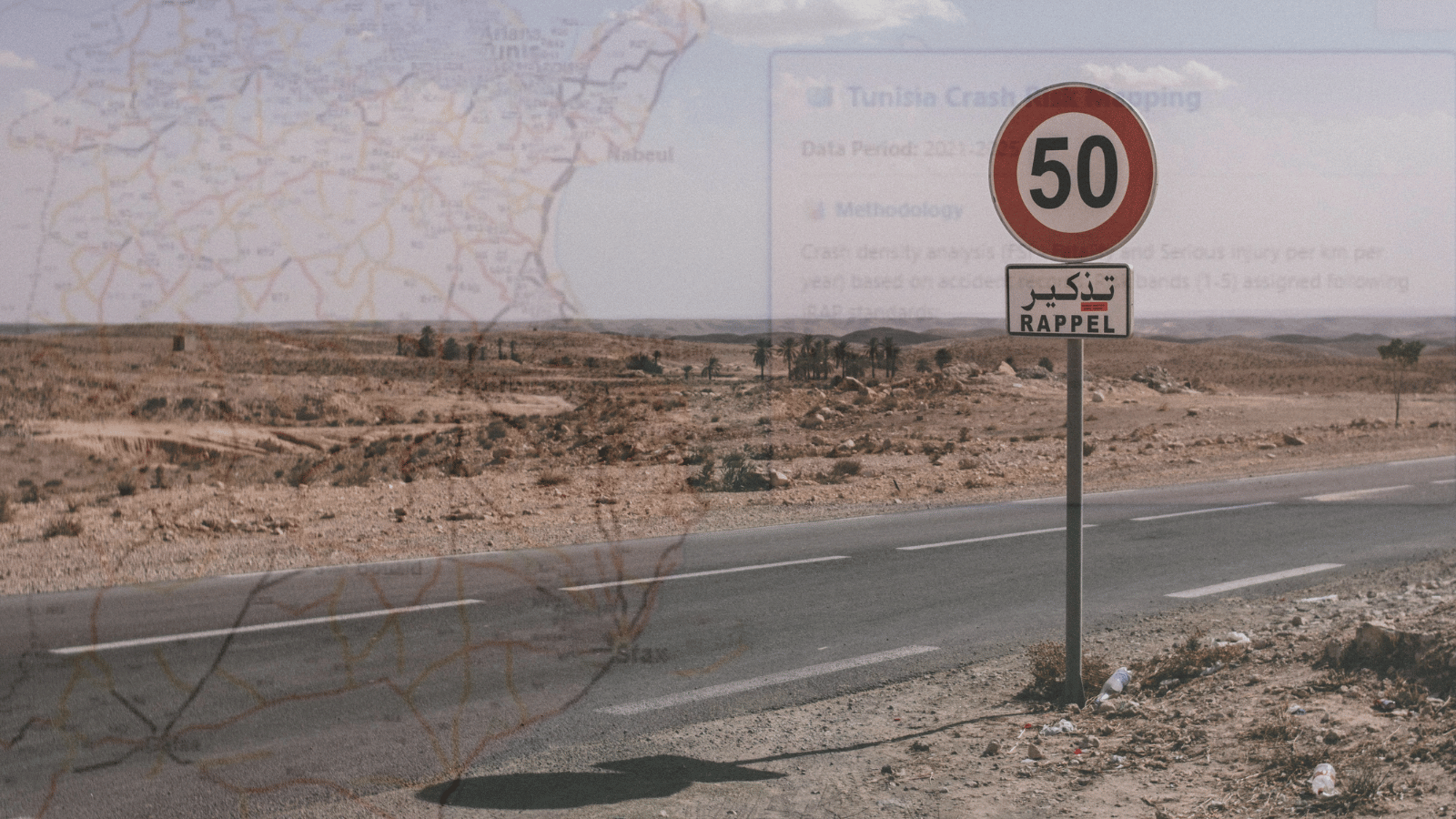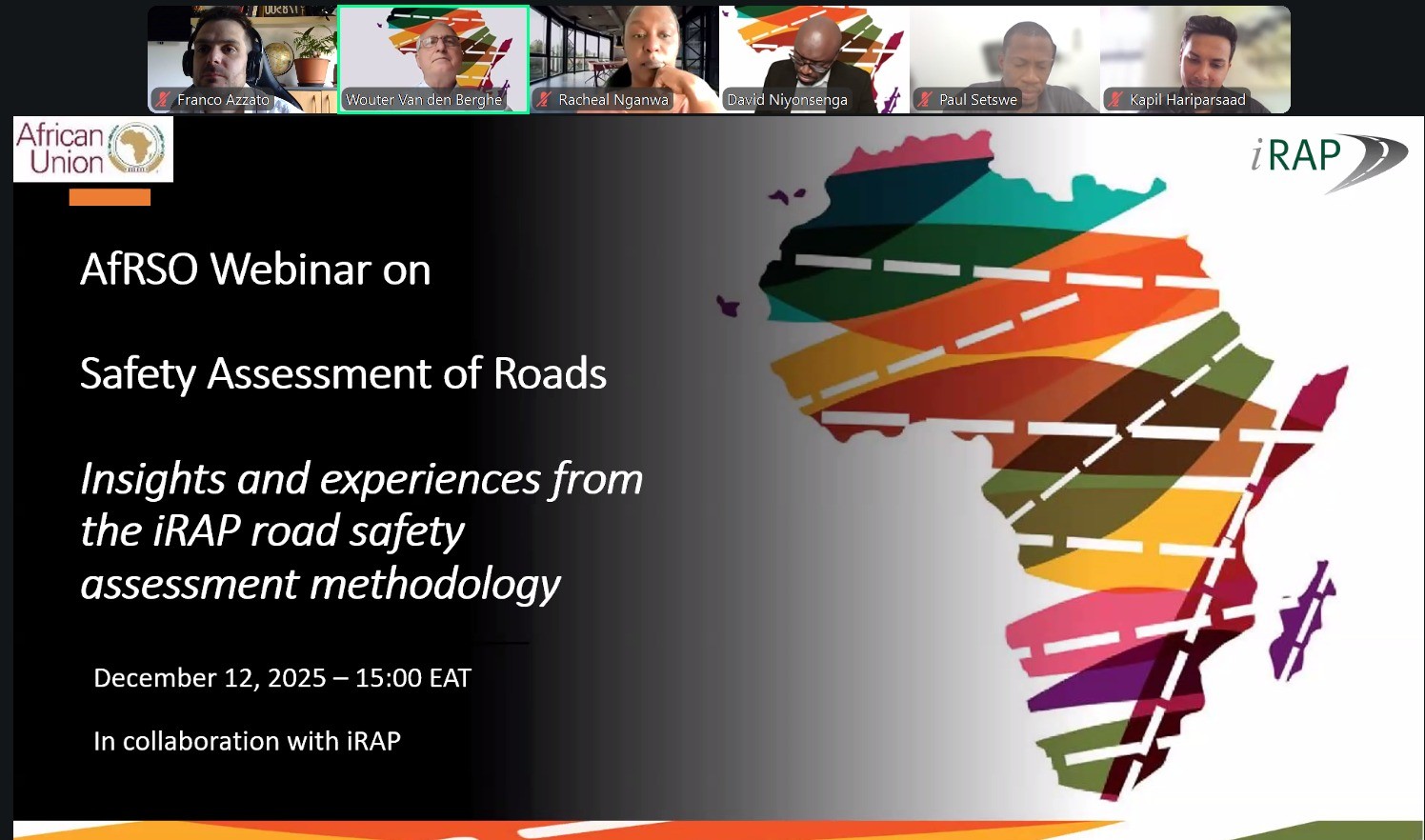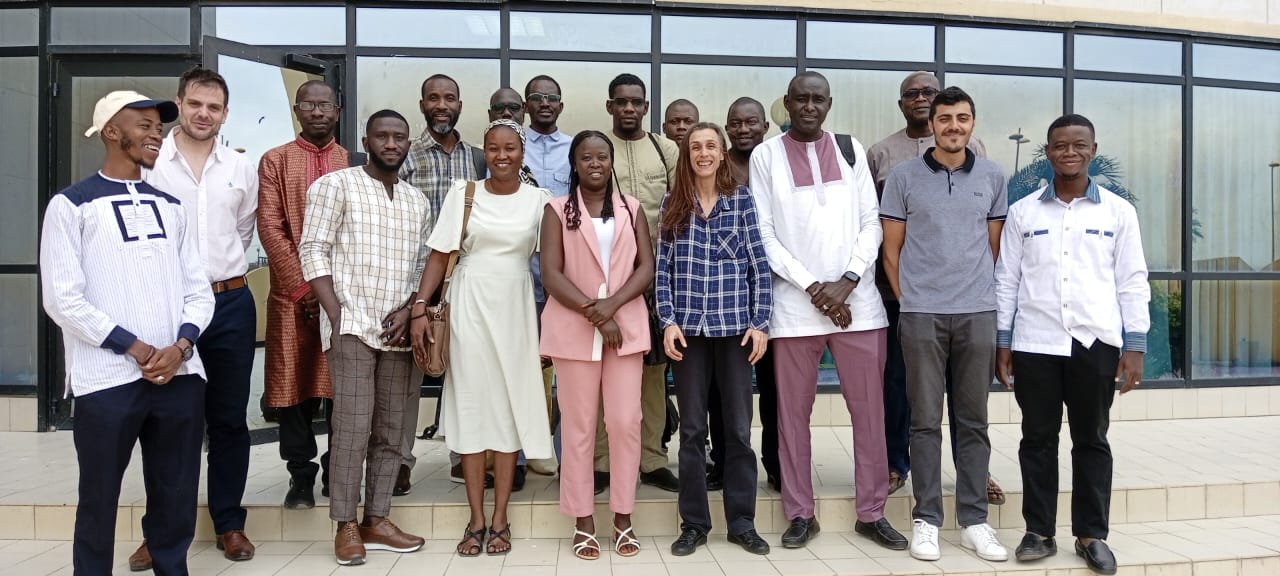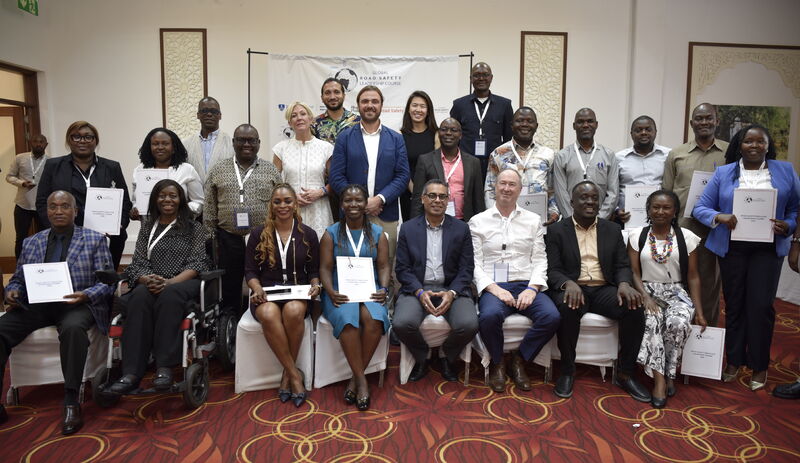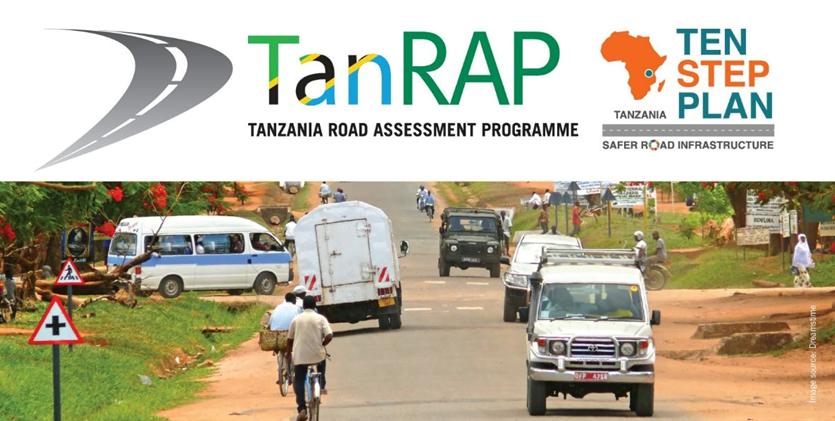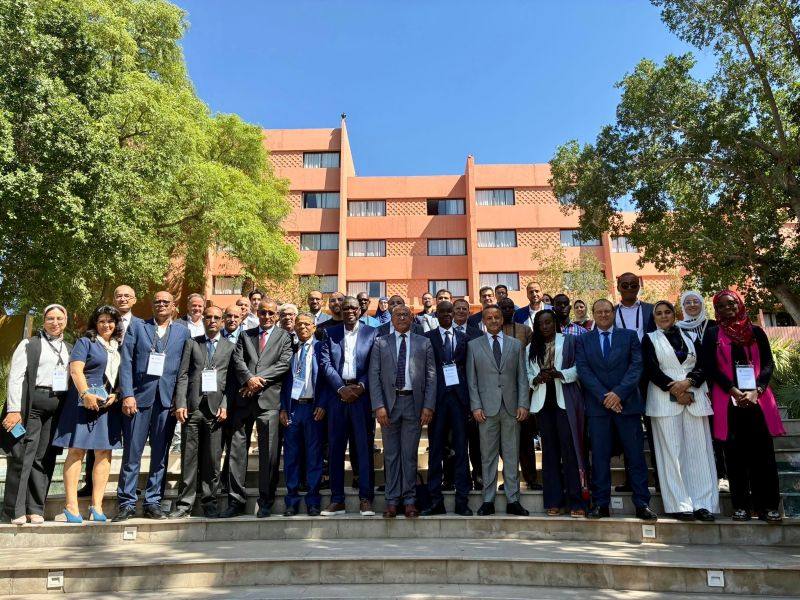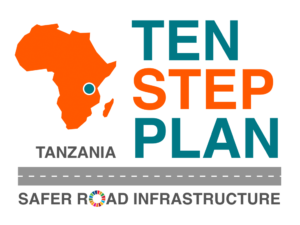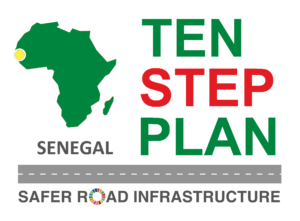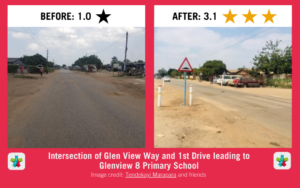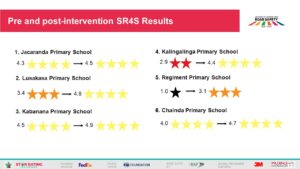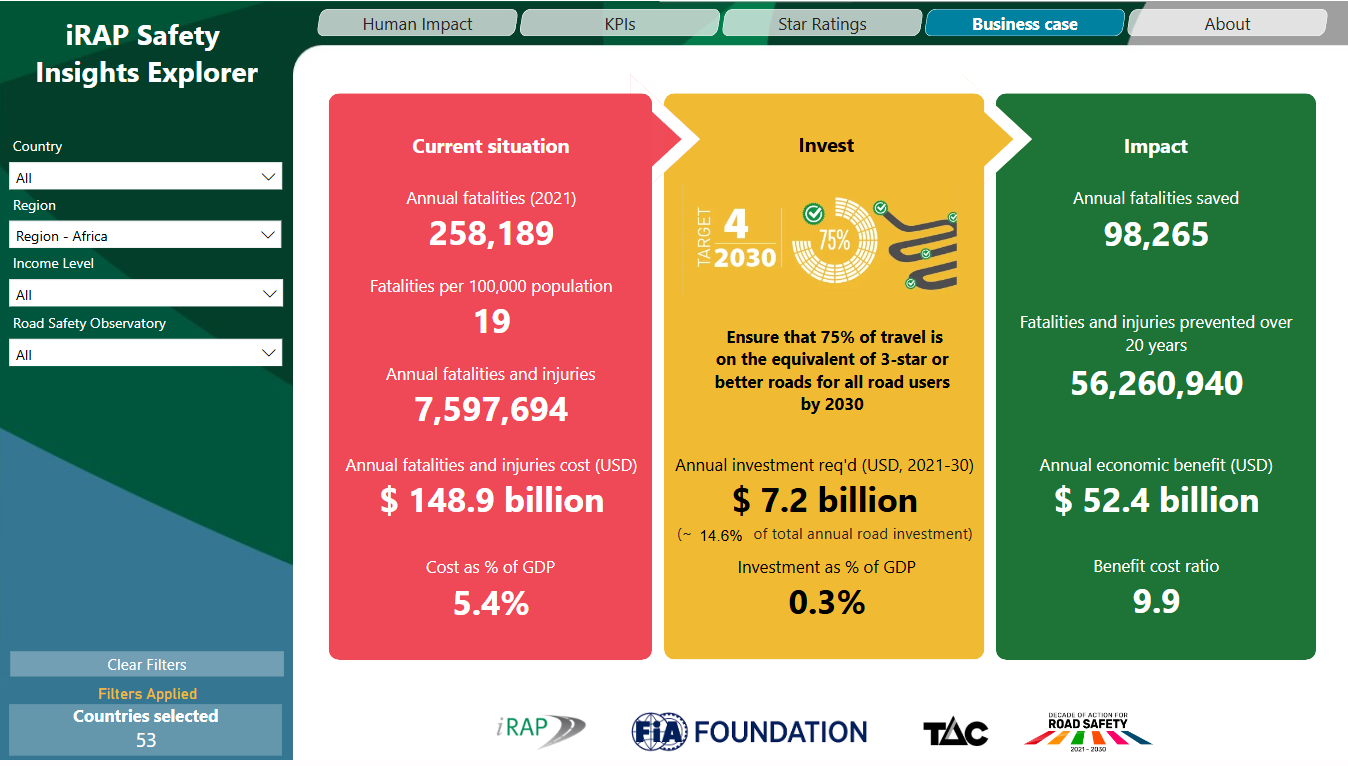
iRAP partner impact in Africa
The Road Assessment Programme (RAP) is working with local partners to help not only save lives on African roads, but also promote healthy and sustainable forms of mobility such as walking and cycling, including through the use of Star Rating for Schools and Star Rating for Designs for safer school journeys and road designs.
Achieving Target 4 by 2030 in Africa stands to save over 98,000 lives a year and 56 million deaths and serious injuries over 20 years, with an economic benefit of US$52.4 billion.

Latest news from Africa
Quick links
- Download the iRAP in Africa brochure
- See the Africa Road Safety Seminar 2024 Summary and presentations
- Read about the Safer School Journey Walkshops held at the Seminar
- Projects driving road safety success and innovation
- Where we work and meet the team
- Case studies of success from Africa and worldwide
- How safe are Africa’s roads?
Projects driving road safety success and innovation
Showcasing a selecting of major projects that have occurred or are still active in Africa over time. Led by various partners in Africa.
Where we work
Download a summary of iRAP partner activity in every Africa country here.
Policies into practice
Many countries are prioritising the safety of their road infrastructure by embedding 3-star or better safety targets in policy, aligned to UN Global Road Safety Performance Targets 3 and 4. A number of African countries have National Road Safety Strategies and Action Plans that include 3-star or better targets for safe road infrastructure.
- Eswatini: 2023-2030 National Road Safety Strategy – iRAP study to be conducted on major rural and urban roads; highway network and >75% of travel on main roads to achieve a 3-star or better safety rating by 2030.
- Gambia: 2020−2030 Gambia Road Safety Strategy – National highway network to achieve 3-star or better performance standard.
- Kenya: 2024−2028 Kenya National Road Safety Action Plan – iRAP assessments to be undertaken of Class A, B and C paved roads, and major urban road networks in Nairobi, Mombasa, Kisumu, Eldoret, and Nakuru, to identify high-risk road sections. Safer Road Investment Plans to be developed to prioritise evidence-based safety improvements and national capacity building to include a focus on the iRAP methodology and tools.
- Limpopo, South Africa: Specify a star rating target for all designs for each road user; Undertake iRAP assessments using accredited experts to ensure a minimum three stars or better for all road users; Prioritise implementation of top 10 countermeasures identified in iRAP star rating process.
- Malawi: 2022−2030 Malawi National Road Safety Strategy – Road Safety Audit to be completed for all new roads, and include iRAP Star Rating. Minimum 3-star to be achieved for all road users.
- Tanzania: 2024/5−2026/7 Tanzania National Road Safety Plan – iRAP methodology to be used and improved road design guidelines and road inspection systems to be integrated with iRAP certification.
- Uganda: 2021−2026 Uganda National Action Plan – Enforce mandatory road safety audits from feasibility to detailed design and during construction using independent and accredited experts to ensure a minimum standard of 3-star rating or better for all road users. Certificate of Road Safety Compliance should be mandated for all road designs.
- Uganda: Guide for Establishment of Safe Schools Zones – Steps for designing new and upgrading existing school zones include assessments using methods such as iRAP Star Rating for Schools.
- UNECA/ Africa: Strategic Directions for Post Decade of Action 2011-2020 and African Road Safety Plan 2021-2030 – Mandatory risk assessment of road infrastructure using independent and accredited experts to ensure a minimum standard of three stars of better for all road users; specify a star rating target for designs.
To view these policies, other global examples and sample infrastructure targets for inclusion, visit irap.org/policies-into-practice
How safe are Africa’s roads and the Business Case for Safer Roads
The iRAP Safety Insights Explorer shines a light on the true scale of road crashes, the safety of the world’s roads, and the positive impact that can be made with investment.
Africa Team

Nathalie Chiavassa
iRAP Safer Journeys Lead for Africa
Click to email

Minh Vo
Sustainable Mobility Coordinator
Click to email



